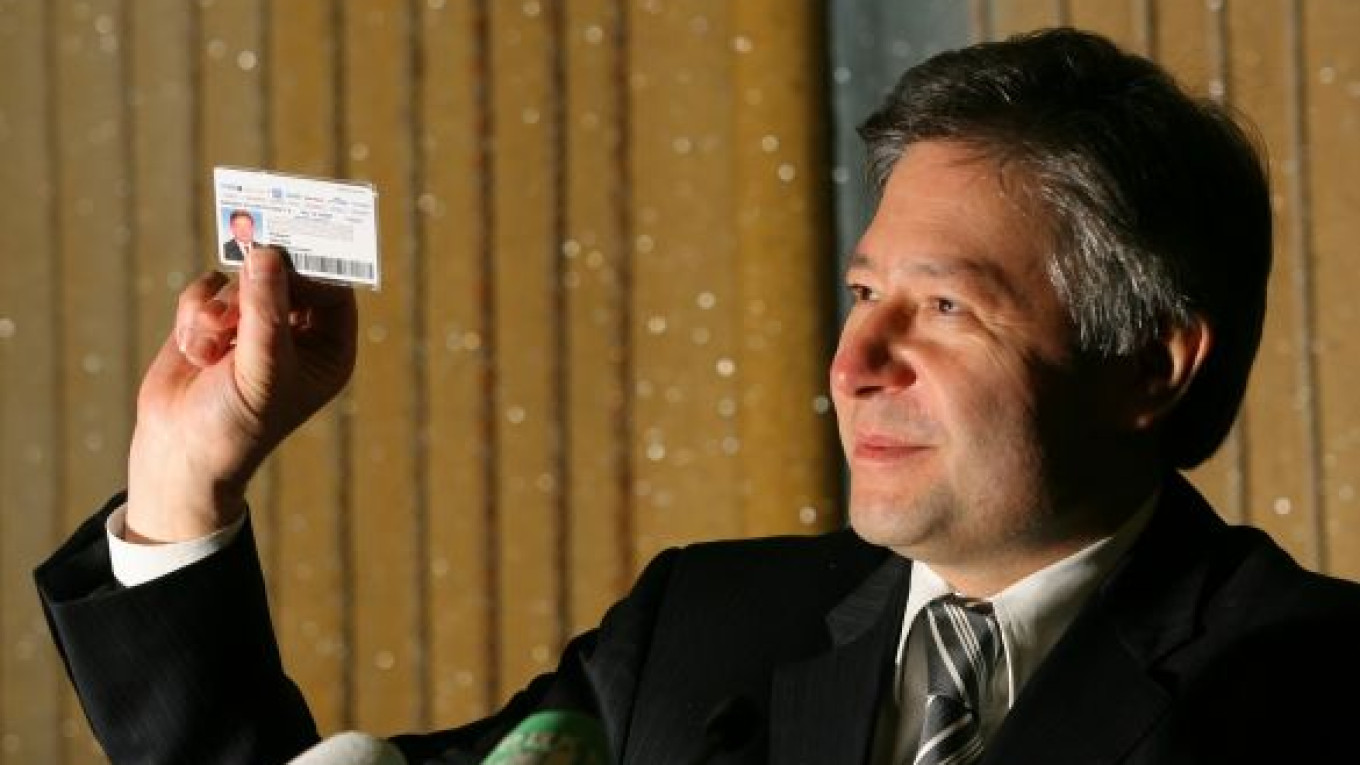Kremlin adviser Leonid Reiman has given the first official confirmation that the state could be interested in the creation of a new Internet search engine, although the project is being developed by private companies and so far without public funding.
Reiman on Tuesday said a new search portal was being developed, a day after Vedomosti reported on the project. Managers from several Russian Internet firms said the headhunter agency Arthur Hunt Group was recruiting employees from Yandex, Mail.ru and Rambler for a new site that would have the state's backing and be comparable in size with Yandex, the local search market leader.
The project is under way, but it is entirely a "market-driven story," Reiman said, adding that it does have the support of the Communications and Press Ministry. Once the project is developed, the state could decide to take a financial interest, he said.
Managers whose employees received recruitment letters from Arthur Hunt said the project's startup budget was $100 million. Development should begin within three months, and the site should be working by the end of 2011, they said.
Reiman declined to comment on which companies were involved in the project.
A spokesman for the Communications and Press Ministry said he was unaware of the project and that carrying out "market projects" was not part of the ministry's work.
The presidential commission on modernizing the economy discussed the project in 2009, Kremlin administration officials and managers of Internet companies told Vedomosti. At the time, no decision was made.
Now, administration officials appear to be divided on the issue. Some of them say they haven't heard that the project is starting, including one who said it would be pointless and very expensive to create a competitor to the existing search portals.
Another high-ranking administration official said, however, that the project could be useful for the state, adding that he hoped that its creators succeed.
Internet firms' managers suggested a number of potential contractors, including state-run Rostelecom, electronic dictionary and text recognition software provider Abbyy, and Ashmanov & Partners, a search technologies developer.
Igor Ashmanov, a managing partner at the third firm, said only that he was not involved in hiring the employees.
A spokesperson for Abbyy declined comment. But a source in the company said that Abbyy had only consulted on its key strengths, morphology and linguistics. The source said the project had not yet started and that no financing had been provided.
Two sources close to Rostelecom said the fixed-line operator had been in talks to help create a national search engine. Initially, the project was to be included in the e-government program, for which Rostelecom is the head contractor. If that happens, the money would be allotted by the end of the year, one of the sources said.
But so far, the operator has not searched for developers or consultants.
The main Internet search principles were developed long ago, Reiman said. Now, the Internet market is developing new technologies to recognize sounds and shapes.
The St. Petersburg-based Speech Technology Center consulted on a project to create a national search engine that recognizes speech, said a source at a major IT company.
Anna Belash, a spokeswoman for the center, said she was not aware of the project, but she noted that the company had already helped develop a mechanism for voice navigation of the state services web site.
As of June 2010, Yandex was responsible for 64.6 percent of all Internet searches in Russia. Google was second, with 22 percent, while Mail.ru had 7.3 percent and Rambler trailed with 2.5 percent, according to LiveInternet.ru.
A Message from The Moscow Times:
Dear readers,
We are facing unprecedented challenges. Russia's Prosecutor General's Office has designated The Moscow Times as an "undesirable" organization, criminalizing our work and putting our staff at risk of prosecution. This follows our earlier unjust labeling as a "foreign agent."
These actions are direct attempts to silence independent journalism in Russia. The authorities claim our work "discredits the decisions of the Russian leadership." We see things differently: we strive to provide accurate, unbiased reporting on Russia.
We, the journalists of The Moscow Times, refuse to be silenced. But to continue our work, we need your help.
Your support, no matter how small, makes a world of difference. If you can, please support us monthly starting from just $2. It's quick to set up, and every contribution makes a significant impact.
By supporting The Moscow Times, you're defending open, independent journalism in the face of repression. Thank you for standing with us.
Remind me later.


